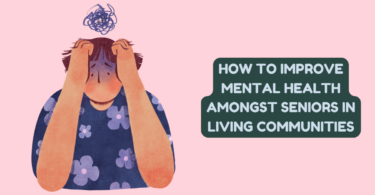
Nursing
Nursing is a demanding and rewarding career that requires a great deal of compassion, skill, and resilience. Nurses work long hours, face complex challenges, and must balance the needs of their patients with their own personal lives.
Over time, this can take a toll on even the most dedicated and experienced professionals, leading to burnout, stress, and exhaustion. Preventing nurse burnout is essential for maintaining a fulfilling and sustainable career in nursing.
In this blog post, we will explore some effective self-care strategies that nurses can use to prevent burnout and build resilience. Whether you are a new nurse just starting your career or an experienced professional looking to avoid burnout, these tips can help you stay engaged, motivated, and fulfilled in your work.
Recognizing the Signs of Burnout
Burnout is a common problem among nurses, but it can be difficult to recognize the signs until they become severe. Symptoms of burnout may include physical and emotional exhaustion, a lack of motivation or enthusiasm for work, and a reduced sense of personal accomplishment, among others.
A recent report by nurse.org found that a significant number of nurses are experiencing negative impacts on their mental health, with as many as 83% reporting that they have suffered. Mental health problems can serve as an early indicator of burnout. By being aware of these indicators and taking a proactive approach to addressing them, nurses can prevent burnout and maintain a healthy work-life balance.
To prevent burnout, it’s crucial to take proactive steps to manage stress and maintain a healthy work-life balance. This may include practicing mindfulness, setting realistic goals and priorities, and taking regular breaks to rest and recharge. It’s also essential to seek support from colleagues, friends, and family members, and to prioritize self-care activities such as exercise, or hobbies that bring you joy.
Recognizing the signs of burnout early on is essential for preventing it from escalating into a more serious problem. Moreover, by being aware of the physical, emotional, and cognitive symptoms of burnout, you can take action to address them before they become overwhelming.
Developing Coping Strategies
Coping strategies are an essential tool for nurses who want to prevent burnout and maintain a fulfilling career. Developing effective coping strategies involves identifying your unique stress triggers and developing a plan for managing them.
When developing coping strategies, it’s crucial to prioritize activities and practices that you enjoy and that align with your values and goals. Some ways to promote well-being and prevent burnout may involve activities such as connecting with family and friends, pursuing artistic or leisure interests, or contributing to the community through volunteer work.
In addition, relaxation techniques like deep breathing, participating in enjoyable physical activities, or seeking assistance from coworkers or mental health experts can also help. By finding meaning and purpose outside of work, you can build resilience and protect against burnout.
Making self-care activities a priority is also essential for coping strategies. This can include things like exercise, eating a nutritious diet, and ensuring sufficient sleep, all of which can significantly improve one’s overall well-being and stress management capabilities.
Unfortunately, a lot of nurses use unhealthy coping mechanisms such as taking alcohol or illicit drugs to manage stress. CEUfast recently reported that substance abuse is a significant problem among nurses, with studies showing that 18% of nurses exhibit signs of substance abuse and 6.6% of all nurses suffer from substance use disorder. The number emphasizes the significance of nurses creating positive coping mechanisms to handle stress and avoid experiencing burnout.
The consequences of substance abuse among nurses can be severe, including impaired judgment and decreased patient safety. However, by developing healthy coping strategies, nurses can protect their patients and promote a culture of safety and well-being in the workplace. This may include participating in stress management programs or seeking support from employee assistance programs. This should also include regular health checkups according to this dentist in Paramus.
Role of Continuing Education in Preventing Burnout
Continuing education is critical to preventing burnout among nurses.
By pursuing ongoing education and professional development, nurses can expand their knowledge and skills, stay up-to-date with the latest research and best practices, and remain engaged and motivated in their careers. This can be particularly true for nurses who may be feeling overwhelmed or burned out, as continuing education can provide a sense of purpose and direction in their work.
Pursuing an advanced degree can be particularly beneficial in preventing burnout among nurses. Mostly, nurses look to pursue higher degrees like a Master of Science in Nursing (MSN) or take a plunge into the profession by doing an Accelerated Bachelor of Science in Nursing (ABSN).
However, nurses may face a dilemma when considering whether to pursue an MSN or ABSN degree because both options have their own unique advantages and disadvantages.
On one hand, an MSN degree can offer nurses the opportunity to specialize in a specific nursing field, such as education or administration. This can be particularly appealing to nurses who are looking to advance their careers and take on leadership roles in healthcare organizations. However, pursuing an MSN degree typically requires a significant time and financial commitment, which can be a barrier for some nurses.
On the other hand, an ABSN degree provides a faster path to becoming a registered nurse and can be completed in a shorter period of time than an MSN degree. This can be appealing to nurses who are looking to enter the field quickly or who are considering a career change. However, ABSN programs can be intensive and demanding, which can be a challenge for some nurses.
Ultimately, the decision to pursue an MSN vs ABSN degree will depend on a nurse’s individual goals, interests, and circumstances. It’s vital for nurses to carefully consider the pros and cons of each option and to seek guidance from mentors, colleagues, and academic advisors as needed.
Seeking Help and Connection During Challenging Times
During challenging times, nurses must seek help and connection as a way to prevent burnout and maintain their mental health. This can involve a range of strategies, including reaching out to colleagues and mentors for support, participating in peer support groups, and accessing mental health resources when needed.
One way to seek help and connection is through participation in peer support groups or professional organizations. These communities offer a feeling of belonging and a platform to exchange insights and knowledge with one another.
Along with these professional channels, it’s essential for nurses to prioritize their personal relationships and engage in activities that bring them joy and fulfillment outside of work.
In a survey of registered nurses conducted in 2021, it was discovered that approximately 46% of nurses utilize resources or participate in activities to address their mental health and overall well-being at least twice a week, with nearly 25% doing so at least 4 times a week. The survey also revealed that about 66% of nurses take action to address their mental health at least once a week.
The statistics show that a significant number of nurses are taking steps to address their mental health and well-being, which is a positive indicator for seeking help and connection during challenging times. Nurses who engage in self-care activities and access resources are more likely to have a support system in place, which can help them cope with burnout and other work-related stressors.
Final Thoughts
Preventing nurse burnout is crucial to ensure a fulfilling and sustainable career in nursing. As nurses care for their patients, they must prioritize their own well-being. By taking care of themselves, nurses can provide the best care to their patients and avoid burnout.
It’s important to keep in mind that prioritizing self-care isn’t an act of selfishness but rather a crucial step in maintaining a balance between work and life and preventing burnout. With the right strategies and support, nurses can thrive in their careers and continue to make a difference in the lives of their patients.






